You cannot collect EDD state disability benefits and workers’ compensation temporary disability benefits at the same time. If the insurance company begins sending you temporary disability checks while you are collecting EDD disability, then you must notify EDD immediately to cease benefits.
When temporary disability payments end, the insurance company must send you a letter explaining why the payments are ending. The letter must be sent within 14 days after your final temporary disability payment and must list all temporary disability payments sent to you.
Even though there is generally a 2-year maximum for temporary disability payments, there are certain exceptions and medical conditions that extend the cap. Call to speak to a lawyer today to discuss your particular situation.
If your temporary disability checks have stopped without explanation, contact a lawyer immediately.
Even though the goal of the workers’ compensation system is to return injured workers to the workplace in their pre-injury condition, oftentimes injured workers cannot return to their jobs and are left with a certain level or percentage of permanent disability as a result of their injuries. If a doctor declares you permanent and stationary and assigns a percentage of impairment, you are entitled to compensation based on that percentage. You may also be entitled to lifetime medical care and vocational rehabilitation benefits. Contact a lawyer to discuss your options.



